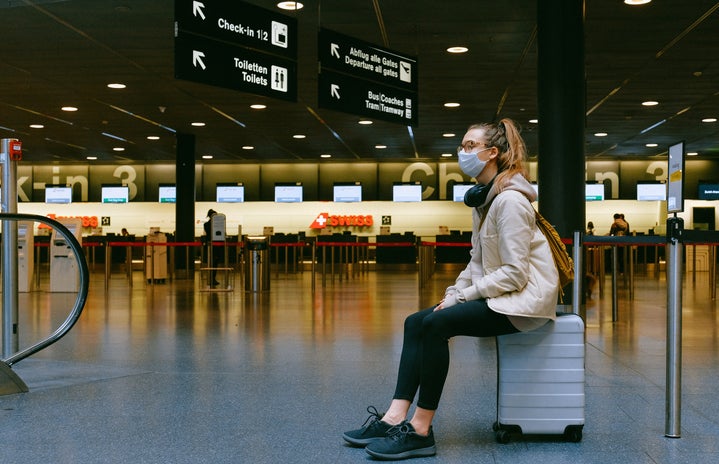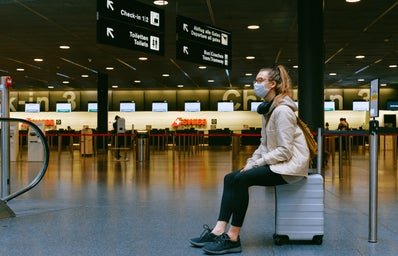I know it may be a lot to ask for college students not to travel during spring break (even I am, myself) but if you’re going to, there are definitely some precautions you should take. Sometimes, it’s hard to believe the COVID-19 pandemic is still going on; it’s been a year since it first began and with the vaccine rolling out, things seem like they aren’t as bad. However, the virus is still sweeping the nation, even if it isn’t as newsworthy as it used to be. Staying safe during the pandemic is a lot easier than it seems and it really doesn’t require much effort, and it’s easy to take small actions to ensure the safety of yourself and those around you. If you’re going home to visit your family in a few weeks like I am, here are three things you can do to reduce the stress of potentially spreading the virus.
1. Quarantine (before and after).
The recommended time to self-quarantine to protect both yourself and those you live with after traveling is 10 days. Even if you haven’t been in an environment that was exposed to COVID-19, it is still important to take this extra step to ensure everyone’s health and safety. There is no such thing as being too safe when there is a virus taking over the world. Despite vaccines being rolled out, we aren’t close to herd immunity yet, and many people our age are often asymptomatic. Obviously, if you’re only going home for the week of spring break, there is no time to quarantine for 10 days. Another measure you could try before heading home is avoiding seeing people outside your college household for five to ten days before going home. This ensures that you know exactly who you’ve seen and what their chances of exposure have been. It doesn’t hurt to communicate with your household and ask them to also try not to see too many people before you go home.

2. “Double-mask” at the airport.
New information has recently come out that reveals the importance of wearing two masks in order to properly reduce the spread of the virus and any new variants of it. “Double-masking” allows for more protection by adding another layer of blockage and securing masks tighter on your face. As much as airport officials can say they sanitize and keep everything clean, there are people constantly going in and out of airports all the time and from all over the world. Having that one extra layer in a location where there are many germs will protect you and your family. If you have been practicing safe and social distancing, double-masking will allow for all of your precautionary efforts to not go unnoticed.
3. Get tested.
Since it’s possible to be asymptomatic, it’s important to get regularly tested. You should get tested a few days before leaving to go home, the day before you travel home, and after arriving home. Testing is quick and painless and plays a huge part in public safety. This quick, 10-minute task can go a long way in providing comfort for you and your family as well as possibly catching a case that might have been missed and passed on to others through your traveling. Most colleges and cities have some form of testing regiment, so look into your college and hometown’s plans to see how you can do your part by getting tested.
Traveling has become a situation that affects more than just you. When you travel, you’re risking possible exposure to every person you have contact with and every person they have contact with. However, traveling is sometimes necessary, so it can’t be avoided altogether, so do your part to be safe. Don’t be selfish –– even if you think you’ll be fine, you might expose someone who won’t be. It sucks we’ve been in a pandemic for an entire year, but it is easy to make sure you are being safe.




